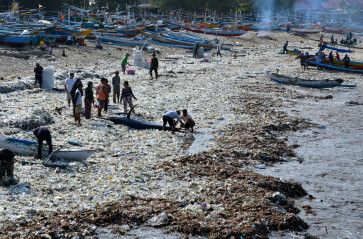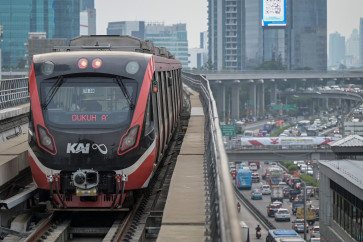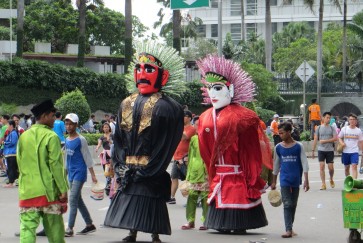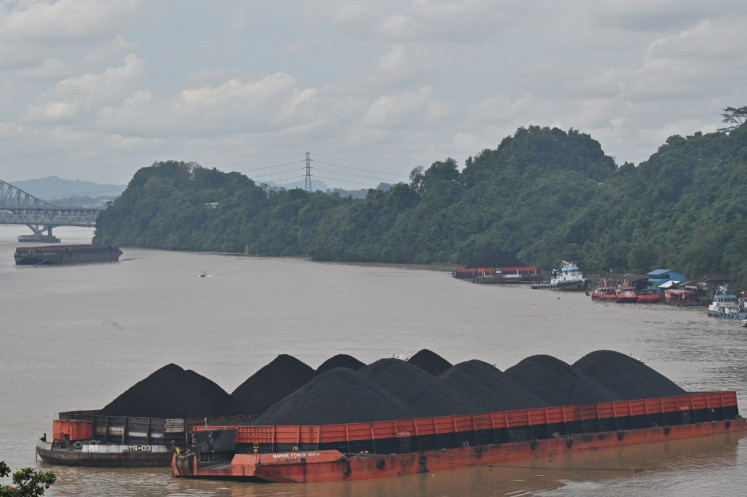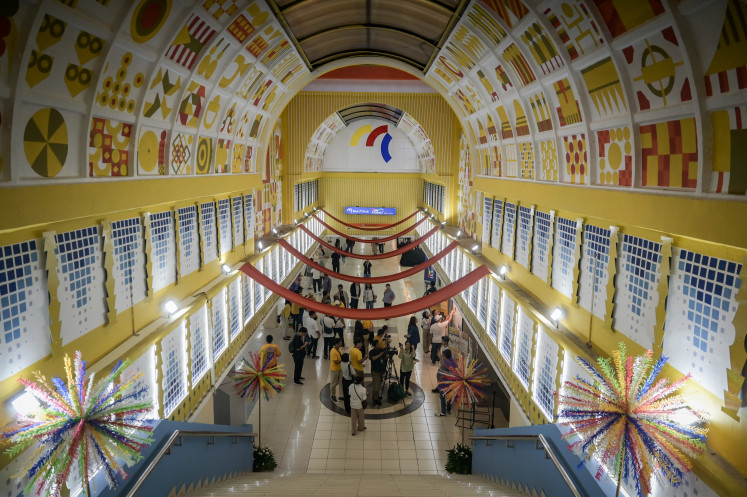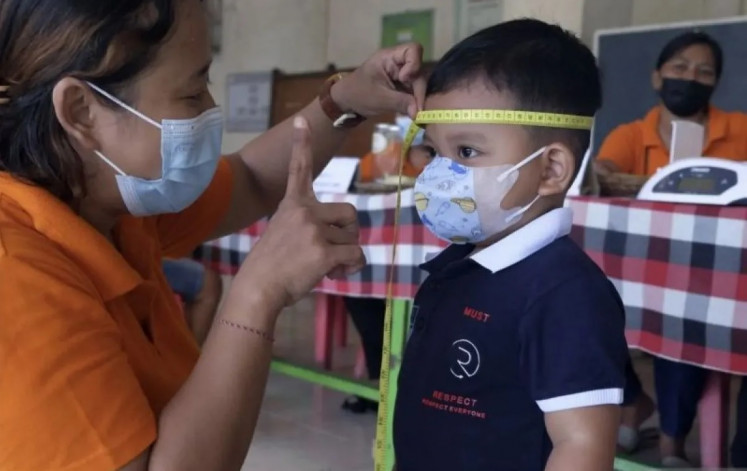Fake cosmetics: Unwanted freckles in Indonesia's budding beauty industry
The Food and Drug Monitoring Agency (BPOM) seized illegal cosmetic products worth Rp 127 billion (US$9 million) in 2018. The number increased from Rp 52 billion in 2017 and Rp 115 billion in 2016.
Change text size
Gift Premium Articles
to Anyone
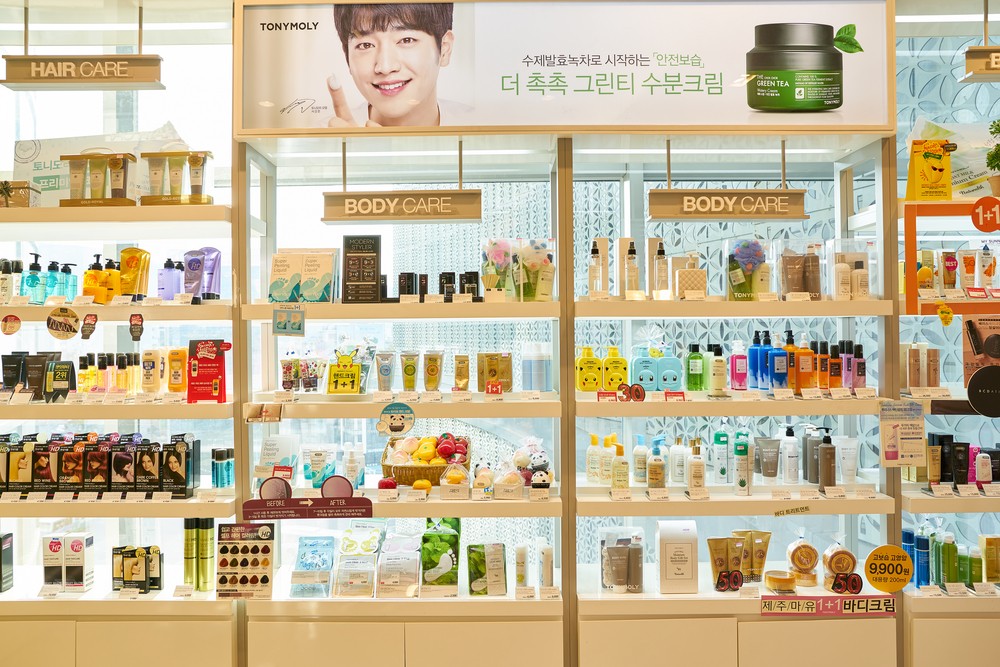 Skin care products sit on display for sale at a store at Lotte Department Store in Busan, South Korea, in May 2017. Cosmetics factories in South Korea have made the country the epicenter of fast beauty, a dominance of the world of contract manufacturing for cosmetics. (Shutterstock/Sorbis)
Skin care products sit on display for sale at a store at Lotte Department Store in Busan, South Korea, in May 2017. Cosmetics factories in South Korea have made the country the epicenter of fast beauty, a dominance of the world of contract manufacturing for cosmetics. (Shutterstock/Sorbis)
A
ngelina Merlyana, 31, found the skin on her face burning not long after she applied aloe vera soothing gel from a famous Korean skin care brand that she had bought online. Later, she found out that she had bought a fake product. The packaging, she said, looked strikingly similar to the original.
Angelina is among many beauty enthusiasts who have joined the skin care and makeup frenzy and often purchased products, mostly of foreign brands, online for their lower-than-counter price or other practical reasons. Just like Angelina, some of them ended up getting fake products.
The Food and Drug Monitoring Agency (BPOM) seized illegal cosmetic products worth Rp 127 billion (US$9 million) in 2018. The number increased from Rp 52 billion in 2017 and Rp 115 billion in 2016.
Indonesia has joined the global beauty trend that has seen an increasing number of so-called beauty influencers: beauty bloggers or vloggers who gain popularity by reviewing beauty products on their platforms. Apart from signing celebrities to become their ambassadors, beauty brands also pay beauty influencers to endorse and review their products. Enthusiasts often find their reviews even more convincing because beauty influencers typically share their subtle transformation using a certain line and may sound more genuine than an ad.
“Every time I come across a new ‘it’ product, I go straight to YouTube to check out what beauty influencers say about it,” Angelina said recently.
With 6,000 followers on Instagram and 65,000 subscribers on YouTube, Jakarta-based beauty vlogger Saddy Aulia said she had been careful in maintaining her integrity as an influencer.
“I only endorse a product after carefully trying it on my skin for at least a month and make sure that the product is BPOM-approved,” she said.
Meanwhile, another beauty influencer, Hestia Melani, from Bandar Lampung said she endorsed and reviewed at least three beauty brands a month on her platforms, which have thousands of followers and subscribers.
“I always check a product before reviewing it. I don’t want to fail my followers,” she said.
BPOM deputy for health and cosmetic supplements, Mayagustina Andarini, acknowledged that endorsement on social media was among the reasons that boost demand for beauty products.
The agency also saw the number of listed cosmetic products surge to 53,000 products in 2018 from 9,310 in 2010. The number of illegal beauty products, unfortunately, concurrently increased, she said.
The authorities have intensified monitoring and law enforcement to address the issue.
This week, the BPOM and Samarinda Police in East Kalimantan raided an illegal cosmetics factory in the city. The factory used hazardous mercury and other irregular ingredients in its products.
“They had been operating since 2017. They said they could get Rp 80 million a day,” Mayagustina said.
To curb the distribution of illegal products, the BPOM created a new deputy position tasked with acting against such illegal activities last year.
In a recent case, model and presenter Olla Ramlan was summoned by the police after she endorsed an allegedly illegal cosmetic brand, Derma Skin Care Beauty.
Celebrities Via Vallen and Nella Kharisma were also questioned by the police after endorsing the same brand.
“The number of reported illegal products is increasing because we have intensified our operations to seize illegal cosmetics. We also have a cyber division to monitor online stores,” she said, adding that the agency had also been promoting its app Cek BPOM (check with BPOM) and hotline 1500533 to the public.
The BPOM warned that illegal beauty products potentially contain hazardous substances that may cause cancer, fetal abnormalities and skin irritation.
The business owners may be charged under Article 197 of Law No. 36/2009 on health that carries a maximum of 15 years imprisonment and Law No. 8/1999 on consumer protection, which carries a maximum sentence of five years in prison.
This article was originally published in The Jakarta Post's print edition on Jan. 12, 2019, with the title "Illegal products pose threat to beauty trend".


